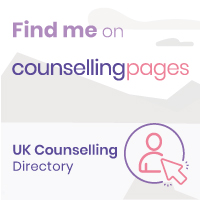How to Choose the Right Counselling Service for Your Needs
- rsewrey3

- Jun 26, 2025
- 4 min read
Navigating life's challenges can be overwhelming, and seeking professional help through counselling is a brave step toward healing and self-improvement. However, with so many options available, choosing the right counselling service for your needs may feel daunting. This guide will help you understand what to consider and explore how to find the best fit for you.
Understanding Your Needs in a Counselling Service
Before you can choose the right counselling service, it's essential to understand your needs. Are you dealing with anxiety, depression, relationship issues, or trauma? Knowing what you want to address can significantly narrow your choices.
For instance, if you're experiencing depression, seek out counsellors who specialize in mood disorders. Alternatively, if relationship counselling is your goal, consider services that focus on couples therapy. Take some time to reflect on your situation and possibly write down the issues you'd like to work through to help clarify your needs.

Types of Counselling Services Available
Counselling services come in various forms, each designed to cater to different needs. Here are some common types:
Individual Counselling: One-on-one sessions focusing on personal challenges and growth.
Couples Therapy: Addresses relationship issues between partners.
Family Therapy: Involves family members to resolve conflicts or improve communication.
Group Therapy: Facilitated sessions with multiple participants and common experiences.
Understanding the type of service you need will guide you toward the right option. For example, if you're feeling isolated in your struggles, individual counselling may be best. But if the dynamics with your partner are more complex, couples therapy might be a better fit.

How Do I Find the Right Counsellor for Me?
Finding the right counsellor involves several steps. Here are actionable recommendations:
1. Research Credentials
Start by checking the counsellor's qualifications, licenses, and certifications. In many cases, licensed professionals have undergone rigorous training and adhere to ethical standards, making them more suitable for your needs.
2. Understand Their Experience
Look for a counsellor who has experience with your specific issues. For example, if you are struggling with grief, seek out someone who has a background in grief counselling.
3. Consider the Setting
Decide whether you prefer an in-person, online, or hybrid setting for your sessions. Some people feel more comfortable in a physical space, while others may appreciate the convenience of online counselling.
4. Check Reviews and Testimonials
Research online reviews or ask for testimonials from previous clients. This can provide insight into the effectiveness of the service and the counsellor’s approach.
5. Trust Your Instincts
After researching potential counsellors, schedule an initial consultation. This meeting will give you a feel for the counsellor's style and whether you feel comfortable opening up to them.
What to Expect During Your First Counselling Session
Your first session can be both exciting and nerve-wracking. Here are some things you can typically expect:
Introduction: The counsellor will generally introduce themselves and outline how the session will proceed.
Discussion of Goals: You'll talk about your motivation for seeking help and what you hope to achieve.
Assessment: The counsellor may ask questions to understand your background and current situation.
Creating a Plan: Together, you'll outline a preliminary plan for your future sessions based on your needs.
Preparing for this initial session can make the experience smoother. It’s helpful to write down your goals and any questions beforehand.

Evaluating the Counselling Process
After several sessions, take the time to evaluate your progress. Here are ways to measure effectiveness:
1. Track Changes
Keep a journal or notes about how you feel after each session. Document any changes in your mood, relationships, or coping strategies.
2. Revisit Your Goals
Regularly check in on the goals you and your counsellor established. Are you making progress? If not, discuss this openly with your counsellor.
3. Open Communication
Counselling is a two-way street. Share your thoughts and feelings about the process with your counsellor to ensure the sessions remain beneficial.
4. Seek Feedback
Ask your counsellor for feedback on your progress and areas where you can improve. This can help you stay focused and motivated.
By assessing your experience in therapy, you can ensure that the counselling service is meeting your needs and helping you grow.
Finding Local Resources
If you're in need of immediate support or don’t know where to start, searching for "counselling agencies near me" can provide local options that fit your requirements. Websites like Serenity Speaking can also offer valuable information and direction as you explore your choices.
Final Thoughts on Choosing the Right Counselling Service
Choosing the right counselling service is not an effortless task, but it is vital for your mental health and personal development. Take your time, do your research, and be honest about your needs and expectations. Remember that seeking help is a courageous decision, and finding the right counsellor can significantly enhance your journey toward healing. Be patient with yourself—finding the right fit may take time, but it's an investment in your well-being that is undoubtedly worth it.










Comments